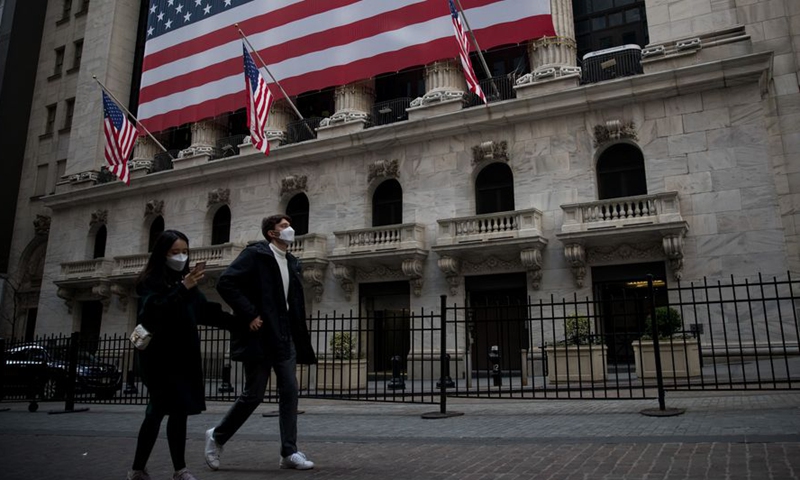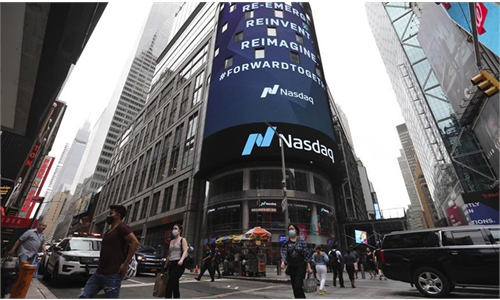NYSE reconsiders delisting telcos after Mnuchin weighs in
NYSE rethinks delisting telcos after Mnuchin weighs in

Pedestrians wearing face masks walk past the New York Stock Exchange (NYSE) in New York, the United States, on March 18, 2020.Photo:Xinhua
In a potential second confusing U-turn, the New York Stock Exchange (NYSE) is reportedly again considering plans to delist three major Chinese telecommunications firms after US Treasury Secretary Steven Mnuchin weighed in following the exchange's decision to give the companies a reprieve, adding uncertainty to the market and potentially jeopardizing US investors' interests, experts said on Wednesday.
According to media reports, Mnuchin talked with the president of the NYSE Group over its decision to keep China's three network operators, China Mobile, China Telecom and China Unicom (Hong Kong), on its board.
The NYSE announced that it would start the delisting process of the three companies on December 31, 2020 to comply with an executive order, but it called off the process only days later over a lack of clarity on whether the companies were actually banned.
The executive order, signed by US President Donald Trump in November, banned public trading of securities of some Chinese companies that the US president deemed as "threats to national security". It included an annex that specifically listed China Mobile and China Telecom as banned companies.
However, on Monday, four days after the NYSE's announcement to start the delisting, the US Treasury added further details on its website regarding the implementation of the executive order, saying that it "does not require" US investors and market intermediaries to divest their holdings in publicly traded securities of companies.
The impact of the back-and-forth moves on the three Chinese companies, whose primary listings are in Hong Kong, might be limited, according to experts. According to the China Securities Regulatory Commission (CSRC), the total market value of the American Deposit Receipts (ADRs) of the companies in the US is less than 20 billion yuan ($3.07 billion), accounting for only 2.2 percent of their total equity.
But the delisting saga is increasingly jeopardizing the independence of the US financial market, and its place as the center of the global financial sector, Dong Dengxin, director of the Finance and Securities Institute at the Wuhan University of Science and Technology, told the Global Times on Wednesday.
It has also sparked confusion in the market and will damage the interests of US investors. Once delisted from the NYSE, investors can normally trade the ADRs to convert them to shares listed on the Hong Kong Stock Exchange, Dong said, but as the current executive order said investors must shed their holdings by November, US investors might be banned from trading them on the Hong Kong Stock Exchange as well.
"In that case, conversion to shares in Hong Kong might only allow the US investors a few more months of trading," Dong said.
On Tuesday, the three companies saw their stock prices rally in New York and Hong Kong, after the NYSE announced its decision to keep the companies on the board. The shares fell in Hong Kong following the NYSE's second U-turn on the matter.

